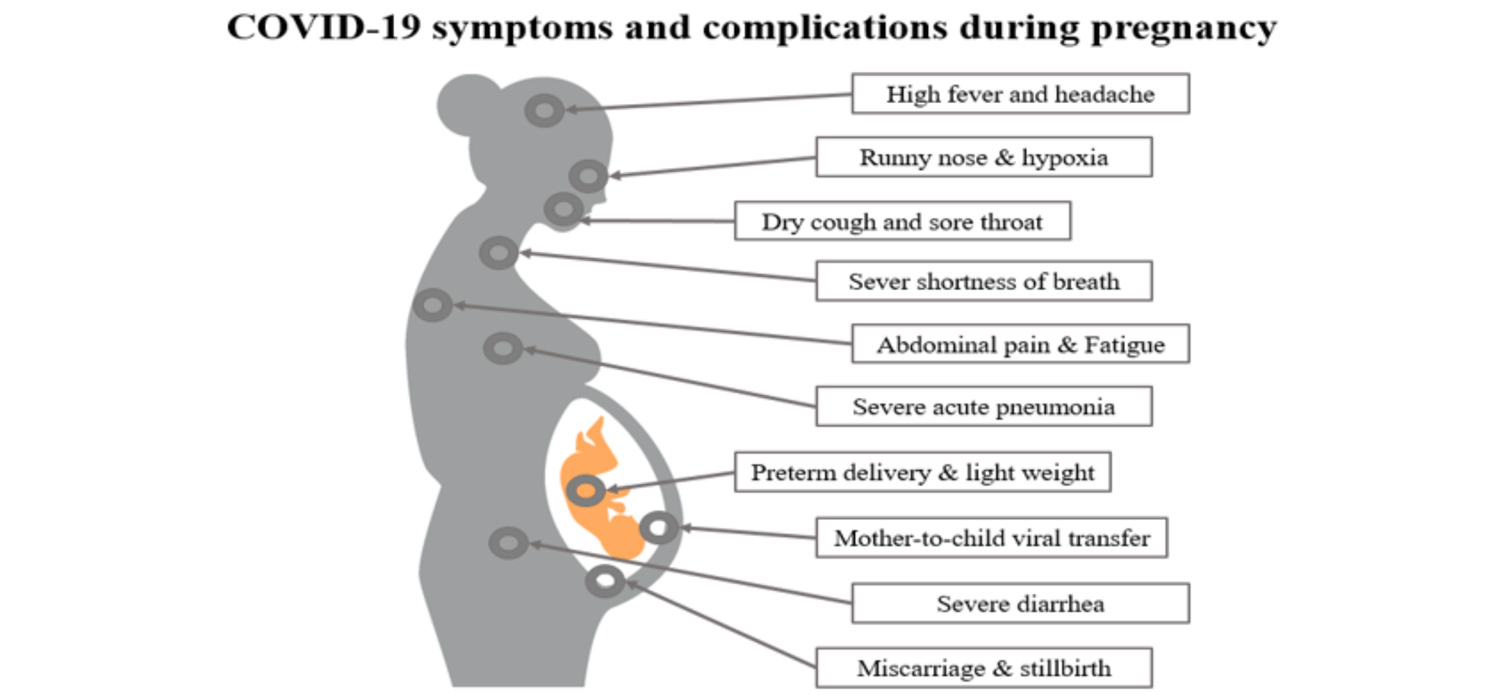Effect Of Covid On Pregnant Women
"Mother... it's just not a word. It's a joyous experience."
The pandemic has resulted in increased anxiety in the universal populace more so for the pregnant women owing to the new period of uncertainty.
Though the effects of the coronavirus are more or less the same on each one of us; pregnant women have been considered as clinically exposed to the added risk of Covid-19 and hence been included in the moderate risk group as a precautionary measure. Expecting mothers in their third trimester or the 28th week, are required to be extra cautious and follow the social distancing norms strictly. Data from various sources revealed women were predominantly affected during their third trimester of pregnancy. Also, women with prevenient medical conditions like diabetes, high blood pressure ,or hypertension ,or prior major surgeries are at an increased risk of enduring the virus and recoup.
What's Important -Pre- delivery?
Blood tests are normally recommended to analyse the hormone levels. Individual tests are not enough to determine whether you have PCOS but Pelvic examinations scanning the abnormalities in the reproductive tract and an Ultrasound helps to examine the ovaries and thickness of the lining of the uterus.
What's Important -Pre- delivery?
Stay safe outside as well as inside the home
Use masks and appropriate face covers to protect yourself. Staying at home is advisable if stepping out is not the utmost necessity.
Social Distancing
Maintain a distance of at least 6 feet. Try avoiding gatherings and crowds.
Active lifestyle
Let's make this a widespread motto for all the would-be mothers "Stay fit and Active". Regular exercises, sufficient vitamin D intake coupled with healthy diets and supplements will benefit both the mother and the child.
Stay Hydrated
Having enough water is a must in pregnancy. It not only hydrates you but also reduces the menace of blood clots.
Respiratory hygiene
Maintaining respiratory hygiene is essential. Infections like flu can have severe impacts on pregnant women which makes them susceptible to viral infections. Take nasal steam, gargle with hot water in order to maintain respiratory health.
Routine Health Checkups
Be regular with your health checkups like antenatal arrangements and pregnancy screenings.
Are you coughing and short of breath? Do you feel unwell due to high temperatures? Experiencing Anosmia (loss of smell) and Ageusia (loss of taste)? Some or all of these symptoms are common in covid positive patients.
If you are pregnant, and in case you develop any of these symptoms of the novel coronavirus, then request help from the maternity team as you would usually do.
What next?
Self Isolation:
Isolate yourself when you develop the symptoms of coronavirus. Make sure you don't step out nor do you have visitors during the period of your self-isolation.
Get help for self:
Speak to your maternity group for any urgent help. For any medical guidance from your doctor, 'Tele- Consultation' or 'Video-Consultation' is the best possible solution in a covid scenario.
Test yourself:
The moment you realize your symptoms are getting worse and you need specialized care, immediately get a test done. This holds true also for people who have been in close touch with you in the past few days.
While some studies suggest that it is possible to transfer the virus from the mother to the baby, no such traces of the virus have been found in cord blood or breast milk. Let's look at the different ways the transmission may take place.
Modes of Mother to Child transmission:
1. Placenta during pregnancy
2. Vagina during birth
3. Breast milk during lactation
There are not many reports on whether coronavirus has affected the babies through vertical transmission. Rather in most of the cases reported, for covid positive women, babies have not transmitted the virus and they were doing quite well.
It is ambiguous whether premature births are in any way linked to coronavirus. No data suggest an increased threat of miscarriage if you are contaminated with coronavirus and pregnant.
Tested positive and troubled?
Calm down. If you are diagnosed with COVID-19, you ought to have clear communication with the maternity staff and follow their instructions as to how would you interconnect with your baby. Let's have a look at some of the uncomplicated ways:
1. According to WHO, there is no restriction on touching or even feeding the new born. Breastfeeding helps a baby to prosper.
• Wear a medical mask while feeding the infant or during any close contact to avoid droplet transmission.
• If the baby being bottle-fed, make sure the same is being washed and sterilized.
• Regular wiping of the surface of the breast pumps is necessary.
• In cases where donor milk is required for the newborn, ensure that it is arranged only from an official milk bank.
2. Wash your hands well (at least 20 seconds) before holding the baby.
3. Routinely clean and disinfect the surface around the baby.
Though WHO has supported sharing the room with the infants, restrictions have been put across in some countries. COVID positive mothers are required to be isolated for at least two weeks and the duration may even be longer or shorter depending on the case.
The consequence of coronavirus is such that it has put a strain on the health care systems along with the mental pressure and trauma of isolation. But let's live in faith. The situation won't last forever and eventually, we all will be out of this.
